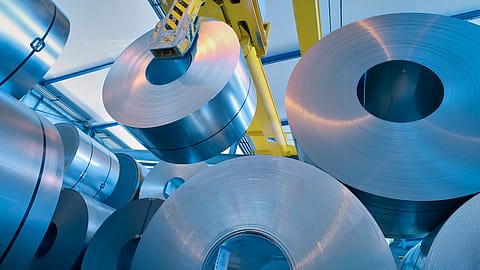Budget 2022: Govt mulls cut in steel import duty as relief to MSMEs
Experts, however, say that the government will need to do a balancing act as the move may hurt domestic manufacturers.

Ahead of the Budget, one of the major concerns before the government is how the skyrocketing steel prices are impacting the MSME sector, which is already facing skewed margins and operational challenges.
Niti Aayog and Finance Ministry are said to be deliberating on how it they help the sector. According to a source close to the development, the government concedes that it will take time for the MSMEs to fully recover from the impact of Covid disruptions. "Input prices, particularly high cost of steel, has been deliberated upon. Aggregation of MSME loan through use of financial technology platforms has also been discussed. On steel, the government is examining feasibility of further reduction in import duties," a top government source told Fortune India.
Apart from MSMEs, steel serves as an input for a number of industries, which too have been feeling the impact of high prices. Finance Minister Nirmala Sitharaman had eased import duty in Budget 2021-22 as well, the impact of which got almost neutralised with the steep price spiral in the last one year. In the Budget, import duty on various categories of steel products were brought down to a common rate of 7.5%. Along with the duty cuts, anti-dumping duty and countervailing duty on certain products were also revoked.
Another government source said the Finance Ministry is looking at the basket of metals that serve as inputs for the MSMEs. Experts point out that the government will need to do a balancing act in upcoming Budget if it sets out to ease steel import duty in the country as it will hurt domestic manufacturers.
Agreeing that import duty cut on steel products will provide relief to MSMEs, Deloitte India partner Saloni Roy told Fortune India, "This move could be detrimental for domestic steel makers as the market could be flooded with imported steel and steel products. The government would need to balance the expectations of both MSMEs and the domestic steel industry.”
Earlier this month, Union commerce minister Piyush Goyal held a meeting with top steel industry leaders and urged them to provide relief to small industries and exporters. Goyal called for "special care to MSMEs" and "cost effective supply of steel."
Steel prices have been rising due to enhanced demand and high input costs. With China imposing production cuts, price of the commodity is expected to remain high. The average price of the benchmark hot-rolled coil (steel) has increased to ₹69,600 a tonne in October this year, up 55% from the November 2020 levels of ₹44,880 per tonne. Another steel variety, cold-rolled coil, has witnessed an 81% jump to ₹90,880 per tonne over ₹50,060 per tonne in November 2020.